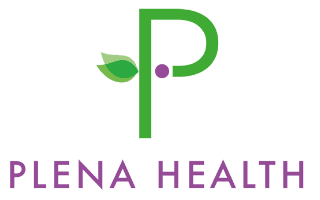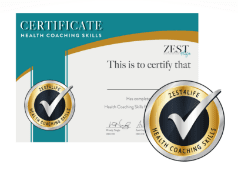Perimenopause & menopause
Embrace the freedom
'The Change'
Menopause is frequently referred to as ‘the change’. Traditionally, women never spoke about it, except to their closest female friends and family.
That has changed in recent years, and menopause is more widely discussed in the media, with women, their partners, families and employers hopefully becoming more informed.
That’s important, because it’s a huge step in a woman’s life, marking the end of her reproductive life and the beginning of a new stage.
It should be the doorway to a new life – freedom from periods and with childcare and family responsibilities receding. But for many, it’s a time of brain fog, anxiety, weight gain, hot flashes, night sweats, insomnia and more.
Good nutrition, with a focus on hormonal health, can help make the menopause a straightforward, natural process of gentle change and renewal.
With the right intervention at an early stage, you can start feeling like your old self and be ready to embrace the challenges and opportunities the rest of your life will bring.
Time to rewrite your story
Optimising your perimenopause and menopause nutrition will help you:
avoid resorting to drugs or HRT, or manage it more easily
excel at your job – no struggling at work or taking time off because you can’t cope
feel healthy, full of energy and hopeful about the future
What is menopause and perimenopause?
Menopause is a natural condition that happens as women age and marks the end of a woman’s reproductive life.
It generally lasts around 10-15 years, starting in the early 40’s and finishing in the mid 50’s, although the classic symptoms last around five years.
Just as with menstruation and pregnancy, though, every woman is different. Some may enter menopause earlier.
Perimenopause

Perimenopause is the first stage of the process, typically from early 40’s onwards. You are on a hormonal roller coaster. Progesterone and Oestrogen levels begin to decline, and periods become erratic, lighter for some, heavier, more painful for others. Oestrogen dominance is often a feature of the perimenopause. Many women start experiencing a myriad of symptoms, including insomnia, brain fog, weight gain, hot flashes and night sweats.
Menopause

The Menopause phase is considered to begin when you have had no periods for 12 consecutive months (the median age is 51.4 years). Oestrogen levels settle and many of the perimenopause symptoms start to decline, although other physical, mental and emotional symptoms can remain.
Nutrition: your saviour
Roll over the images to see information about the nutrients
Vitamin D
Oily fish (sardines, salmon, tuna) and Vit D-fortified milk.
Reduces excessive blood lipids, which can cause fat deposits in the arteries and increase the risk of heart disease. Increases bone density, reducing risk of osteoporosis.
Omega-3 fatty acids
Oily fish
Protects the heart; anti-inflammatory; offsets insulin sensitivity in reaction to falling oestrogen levels
Antioxidants
Almonds, walnuts, spinach, artichokes (and many other veggies), many berries, whole grains, red wine, spices, dark chocolate
May positively impact anxiety and depression, commonly experienced during the menopause.
CALCIUM
Dairy products
Offsets effects of declining oestrogen on bone density
VITAMIN K2
Cheese, liver, chicken
Some protection against hardening of the arteries and osteoporosis; Helps reduce abdominal fat.
It’s not you, it’s your hormones
Perimenopause and menopause is a time when our bodies can change without us really knowing why. You can eat the same type of food you’ve eaten happily for years and, all of a sudden, you’re putting on weight and can’t understand why.
The problem lies in the profound hormonal changes your body is going through. After decades of preparing every month for pregnancy, it’s gradually transitioning to a post-reproductive existence. The hormones that have protected your organs and bones for so many years are receding, which is why osteoporosis and cardiovascular episodes become more common in post-menopausal women.
Understanding that and knowing which foods to eat to neutralise that increase in risk, are key to a healthy and happy future. A lot of advice women receive at this stage is focused on losing weight, but this is a symptom, not the problem.
Our own personal and professional journey as women and nutritional health specialists has proven to us beyond doubt that addressing nutritional health in perimenopause and menopause – ideally before you enter that stage – can literally change your life.
47-year-old Deborah enjoyed an active and healthy lifestyle – walking and cycling regularly and working out at the gym so often her friends had taken to calling her a ‘gym rat’.
Deborah always prided herself on her hour-glass figure and enviable waistline but, as she entered her late 40’s, the weight began to pile on, especially around her middle.
“I was sluggish and no longer full of beans. I couldn’t explain why,” she said. “I hadn’t changed what I was eating. If anything, I was even more careful.”
One of Deborah’s friends suggested that it maybe something to do with the menopause and perhaps she needed to modify her diet. So, Deborah got in touch with us for a free exploratory call with Danielle.




